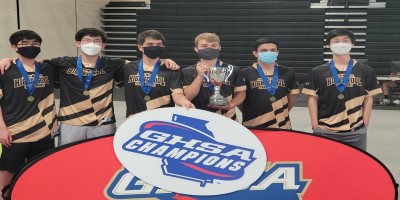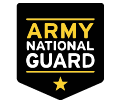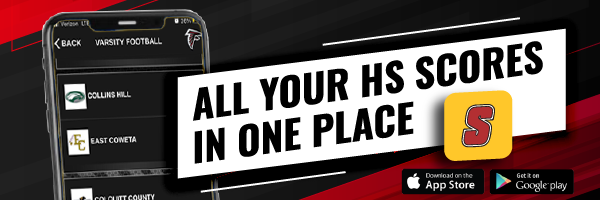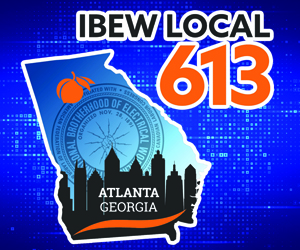
On July 28, 2019, a sixteen-year-old kid won $3 million dollars for playing in a video game tournament.
Pennsylvania-born Kyle Giersdorf, also known by his gaming handle “Bugha,” claimed the inaugural Fortnite World Cup title at Arthur Ashe Stadium in New York and brought national attention to the growing esports industry across the world.
For Lambert High School and its head esports coach Kevin Sapp, Giersdorf’s accomplishment only led to increased support for the recently founded Longhorn esports program.
“They [Lambert] know that this [esports] is a big thing. It’s a sport,” said Sapp. “They’ve seen the growth in esports and they realized that this is a natural progression.”
After the GHSA and PlayVS, a platform founded for high school esports competitions, introduced competitive esports in 2018, Lambert appointed the newly-hired Sapp to lead the Longhorns’ esports team.
Within the first year of GHSA esports competition, the Longhorns finished second in the state for the game League of Legends during the Fall 2018 season before claiming the title in the Spring of 2019.
Lambert is the only esports program to have a team compete in every state championship since its introduction. However, as the team entered the Fall 2020 season, they had still not earned any additional championships.
That changed this season as Lambert solidified itself as the premier esports program in the state of Georgia as it won championships in League of Legends and Rocket League in the Fall of 2020 and repeated just under a week ago for the Spring 2021 season. Additionally, Lambert’s Madden team placed second in the state last week in the first season of Madden competition.
With no GHSA classifications for esports, Lambert’s Rocket League team now ranks first out of 166 teams and its League of Legends team is the top competitor among 139 teams. Lambert is now the program to beat in the state of Georgia and one that is an excellent model for other Georgia high schools to follow.
“We have a lot of administrative support from our principal and athletic director,” said Sapp. “They’re always on top of us and asking us what we need to be successful.”
During the esports season, the time commitment is quite demanding for Sapp. In addition to working 40 hours during the week, he spends an extra 20 each week running practices with his group, watching film of his players and attending matches which usually take place on Tuesdays and Thursdays.
As Sapp has gotten more comfortable coaching, his practices have been able to evolve. The usual practice now consists of players running click tests and testing other peripherals before jumping into games. Both the League of Legends and Rocket League teams usually play together in order to learn the synergy of the teams and develop an excellent line of communication among the players. Madden practices typically involve consistent gameplay in addition to studying playbooks and successful playstyles. Sapp also requires that his players watch at least one hour each week of a professional gamer playing the individual game that his athletes are competing in.
Sapp has also learned to adapt his coaching strategy with his esports players. Instead of the usual loud, forceful approach common in traditional athletics, Sapp has made it a point to connect and share the same passion of many of his athletes in order to provide constructive criticism and challenge them to improve their gameplay and strategy.
While many may not view esports as a true sport, Sapp believes that his athletes are learning the same valuable lessons that most students learn in traditional sports.
“Ultimately, I think it [esports] teaches them the same things that every other sport teaches,” said Sapp. “It teaches them how to be graceful when winning and also how to be graceful with losing and learn from those experiences. They can then take those defeats and move forward and learn something from them.”
For Sapp, it’s been a learning experience for him throughout his time as head esports coach, but he is proud of the culture that has been established within his team so far.
“I think esports is something that’s definitely here to stay. It’s really a way for schools to bring kids who aren’t necessarily your most athletic,” said Sapp. “You get more of your smarter kids who do well in school. They aren’t the kids who are going to join the football team or join the wrestling or lacrosse teams, but now they’re bought into the Lambert system and our kind of community that we run here. I think that other schools are going to realize that too and open it up more.”
Currently, the Longhorns have around 40 students on their esports roster, a number that Lambert projects to grow as the program experiences more success. As other schools continue to expand or introduce their esports programs, Lambert will try to maintain a competitive edge over the next few years and encourage other schools to build the kind of program it has. When asked about his plans for his esports team over the next few seasons, Sapp’s answer was simple: “Win more state championships.”










































